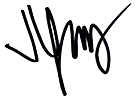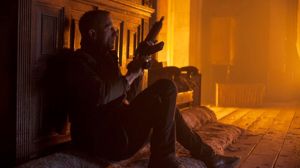James Bond has always been one of the more sophisticated schoolboy fantasies. From afar, the mythos might seem a rather weightless melange of gizmo fetishism and gratuitous ogling--and the lamest installments in the franchise certainly embrace that shallow doctrine. But the better iterations of Bond, in print and onscreen, are more than just macho male reveries. They're stories about being alone. About isolation, physical and emotional. Ian Fleming's novels, for all their passive racism and backwards sexual politics, are about a terribly lonely man who is always making poor decisions and finding himself reliant on his superhuman stubbornness to survive (often just barely).
Skyfall is the third film since the series rebooted in 2006 with bullet-headed Daniel Craig in the eponymous role, and it addresses these ideas of loneliness and abandonment more directly than any of the previous twenty-three flicks. Miraculously, it does this without ever becoming too self-serious or morose.
Despite providing the series with some of its darkest moments, Skyfall feels - in its grand embrace of everything that (for better or worse) has defined James Bond over the last half-century - like the most joyous, self-aware, cinematically coherent expression of Bond. Perhaps ever.
So why am I writing this letter to you, Joss?
Because all of this positivity, ironically, was helped greatly by the stunning amount of guns you provided for the shoot.
Hey, wait, hold on. I hate guns as much as any effeminate liberal pseudo-intellectual. But as abominable as the use of firearms is in the real world, the pop of gunfire is the backbeat to which every modern action film finds its rhythm. And guns have always been integral to Bond folklore, from his MI6-issued Walther PPK to Scaramanga's Golden Gun.
A Bond film will always be the sum of its individual parts: the stunts, the action scenes, the sexy accented women. Skyfall boasts more than one sequence that, in any other respectable blockbuster, would be the adrenalized center-piece: a conflict with an assassin in a neon-lit Shanghai skyscraper; a fistfight in a komodo dragon pit; a rush-hour chase through London's tube system; an assault on a crumbling estate in the Scottish highlands. In all of these scenes, guns play a prominent role. Futuristic sniper-rifles, old-timey pirate pistols, handguns with palm-print-recognition software--guns, particularly when they're not fired, establish the life-or-death stakes.
(It should be noted, too, that Bond films are helped or hindered exponentially by the quality of the antagonist, and here we get Javier Bardem in a performance that, in its twitchy, grinning bravado, perhaps owes something to Heath Ledger's Joker--and is almost as great.)
If Casino Royale was all about Bond's brute physical force, Skyfall is about his tactical canniness (I'm still not sure what Quantum of Solace was about; I think there was a boat chase at some point, right?). More than even Sean Connery, Daniel Craig captures the stalk and swagger and squareness of Fleming's Bond. For a long while filmmakers seemed to mistake Bond's steeliness for refinement, elegance. In fact, it's a moral coldness. Bond is an orphan, after all; raised by The Service.
The last act of Skyfall does something that no other Bond film has done: it brings the character back to his roots. We see the home where he grew up. We get a broader sense of his lineage. And there, in the climactic battle, it's not his personalized Walther PPK that Bond turns to. It's his father's old hunting rifle. And that seems to be the trajectory of the entire film. A return to the fundamentals. Bond, back to the basics.
As a result, Skyfall is the most satisfyingly contemporary James Bond movie--and also the one that seeks most earnestly (and most successfully) to associate itself with the very first films. Anyone familiar with the early Connery era will be thrilled by the final moments, when all the early set-ups fold perfectly together to establish a new status quo. By then, even the coat-rack in the corner of the room feels iconic.
So, congratulations on a job well done, Mr. Skottowe.
Or shall I call you Q?
Sincerely,

Jared







